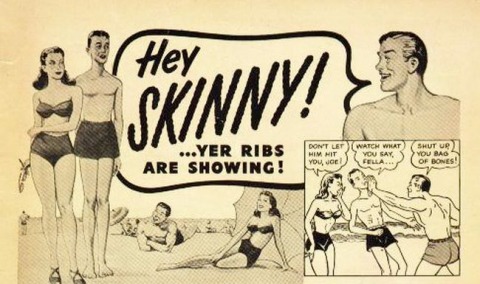
Monday – Student letter day!
Question:
Secular humanists deny God, holding that nothing is greater than human beings. However, do they think that some humans are greater than others?
Reply:
Some do. A good example is the influential jurist Oliver Wendell Holmes, founder of the school of thought called legal realism (which would more properly be called legal anti-realism, because it denies the reality of moral law).
Holmes did not believe there was anything above human beings, but he didn’t think there was anything special about them either. He wrote, “I see no reason for attributing to a man a significance different in kind from that which belongs to a baboon or to a grain of sand.” Having thrown moral and spiritual values out the window, he had nothing left to believe in but lethal force: “The world has produced the rattlesnake as well as me; but I kill it if I get a chance, as also mosquitoes, cockroaches, murderers, and flies. My only judgment is that they are incongruous with the world I want, the kind of world we all try to make according to our power.”
The same rule of conquest applied in his view to the relations of strong humans with weak ones: “All my life I have sneered at the natural rights of man.” “I believe that force, mitigated so far as may be by good manners, is the ultima ratio.” “Every society rests on the death of men.” What he called “my starting point for an ideal of the law” was “taking in hand life and trying to build a race.” In practical terms, this mean killing everyone “below standard”: “I can imagine a future in which science … shall have gained such catholic [universal] acceptance that it shall take control of life, and condemn at once with instant execution what now is left for nature to destroy.”
Bear in mind that secular humanism is not a single ideology but a family of ideologies. Although certain kinds of secular humanists do claim to recognize the dignity of the human person, in practice they find it difficult to keep from being sucked into the black hole of HHHolmesian brutality.
Consider for instance the widely-circulated “humanist manifestos.” Although the signatories of Manifesto II devote an entire section to ethics, they insist that ethics is “situational.” This means there are no exceptionless rules; so given the right situation, anything might be permitted. In the same oxymoronic spirit, they declare that “the preciousness and dignity of the individual person is a central humanist value” and affirm belief in “the principle of moral equality,” but at the same time insists on the right to abortion. So all humans are equal, but some are more equal than others.
The quotations from Oliver Wendell Holmes are taken from Albert W. Alschuler, “A Century of Skepticism,” in McConnell, Cochran, and Carmella, eds., Christian Perspectives on Legal Thought (Yale, 2001). A condensed version of the chapter is available here. Humanist Manifesto II can be found here. Next time: The Same as to Knowledge, Part 2 of 14.